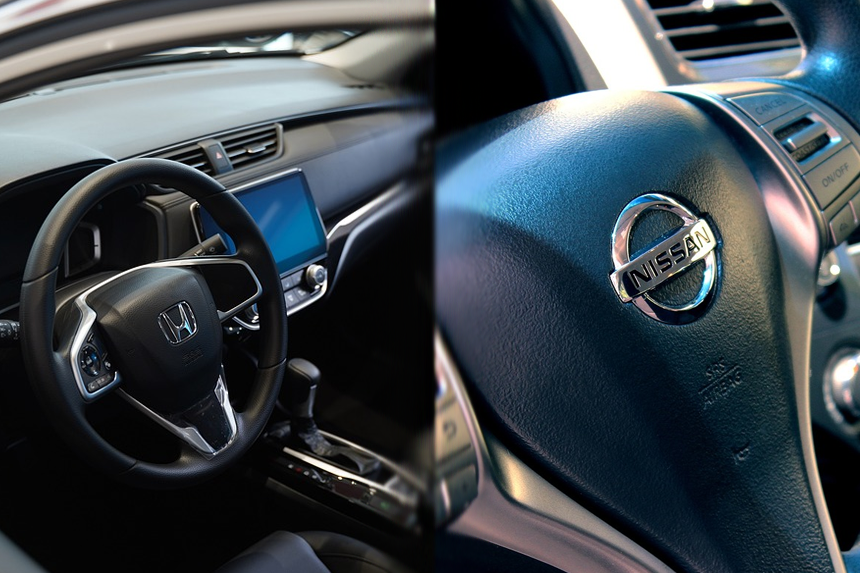Two of Japan’s most well-known manufacturers, Honda and Nissan, have declared intentions to combine to form a strong alliance capable of challenging the growing dominance of Chinese automakers. Along with Toyota, Volkswagen, General Motors, and Ford, this possible multibillion-dollar deal—which also includes Mitsubishi, a firm in which Nissan owns a sizable share—positions the combined corporation among the biggest automakers worldwide.
Emphasizing the significance of this alliance, Honda’s CEO Toshihiro Mibe said, “The growth of Chinese strength and rising forces is transforming the structure of the automobile industry. We have to develop our capacities by 2030 if we are to resist; otherwise, our competitors will overwhelm us. The action coincides with increasing pressure on Japanese automakers from Chinese electric vehicle (EV) companies, especially BYD, which has become well-known worldwide.
How does China impact the Electric Vehicle Market?
Rapid expansion in the market for electric vehicles has seen Chinese-made EVs take centre stage. The success of businesses like BYD has set off concerns for established automakers, especially those in Japan. Mr Mibe’s remarks capture the severity of the matter since car manufacturers fight to match the creativity and affordability of Chinese companies. “The structure of the automobile industry is changing,” Mibe said during a news conference.
China is now the top producer of electric cars worldwide; its reduced labour and manufacturing costs have made it challenging for outside businesses to stay competitive. Lower pricing offered by local Chinese manufacturers for EVs appeals to consumers more since they allow them more affordability. This is particularly worrisome as the expansion of Chinese automakers keeps outpacing that of established rivals.
What advantages can a strategic alliance between Honda and Nissan bring?
The suggested combination of Honda, Nissan, and Mitsubishi’s resources would produce a strong force in the market for electric cars. The three firms have already started working on EVs, batteries, and other futuristic technology. Honda and Nissan agreed to investigate a strategic alliance to strengthen their electric vehicle capabilities in March; this action was followed in August by an agreement to collaborate on battery technologies.
Nissan CEO Makoto Uchida said, “Honda and Nissan’s total sales are $191 billion. We could combat the rising EV industry players with the scale and tools this combination could provide.
The alliance will enable efficiency and enhance the companies’ competitive edge against rivals like Tesla by sharing R&D, manufacturing, and supply chain resources. Mr Mibe made it clear that the agreement was not a rescue for Nissan, which has battled declining sales—especially in China and the United States—in recent years.
How Has Nissan struggled recently?
Furthermore, the suggested merger is perceived as a reaction to Nissan’s continuous challenges. The corporation has seen various difficulties, including dwindling sales and the fallout from the controversy involving its former CEO, Carlos Ghosn. Ghosn was detained in Japan in 2019 on allegations of financial misbehaviour; he escaped to Lebanon and is still there. Nissan’s reputation and business practices suffered long-lasting effects from the incident.
As Nissan tried to get back on its feet, it revealed in November that it intended to cut roughly 9,000 jobs worldwide and lower production by 20%. A decline in sales in critical regions such as China and the US has significantly affected the corporation.
Notwithstanding the challenges, Nissan has tried to stand out worldwide. Now living in Lebanon, Ghosn questioned the merger proposals, nevertheless. He said of them a reflexive action motivated by despair and panic. “This is not a strategic action,” Ghosn stated in December. “It’s an effort to turn around a company lost in direction.”
What political and financial ramifications follow from the merger?
Any possible combination between Honda, Nissan, and Mitsubishi will probably be closely watched both inside and outside Japan. Concerns about job losses and the possible change in the Japanese automotive scene mean that the government is probably closely observing the agreement. Given that both Honda and Nissan have a sizable workforce in Japan, political officials could be concerned about the social and financial fallout from a combination.
Furthermore, Nissan’s relationships with long-standing French partner Renault are likely to change as part of the merger talks. As part of the new alliance with Honda and Mitsubishi, Nissan’s decades-long collaboration with Renault could be undermined or reorganized.
Notwithstanding these difficulties, Mr. Mibe has said that the merger is necessary for the companies engaged to have a bright future. “We aim not just for survival but also for flourishing in the evolving automotive environment. The combination will help us generate a more powerful, competitive force on the market.
In what ways will the merger shape the automotive sector in the future?
The emergence of Chinese electric vehicles—especially from companies like BYD—has drastically changed the dynamics of the worldwide automotive sector. As China leads the world in producing electric cars, automakers in Japan, Europe, and the United States are up against hitherto unheard-of rivalry. The suggested combination of Honda, Nissan, and Mitsubishi reflects a daring reaction to this changing scene. Should it be effective, it might change the direction of the automotive sector and equip Japan’s heavyweights to compete with their Chinese counterparts more fairly.
The merging does, however, have some hazards. Overcoming political, financial, and logistical obstacles will be necessary, and it is still to be seen if the combined might of these businesses will be sufficient to oppose the rising dominance of Chinese electric manufacturers. The clock is running for Honda, Nissan, and Mitsubishi to create a strong enough alliance to remain competitive in a globalized and complicated market.








